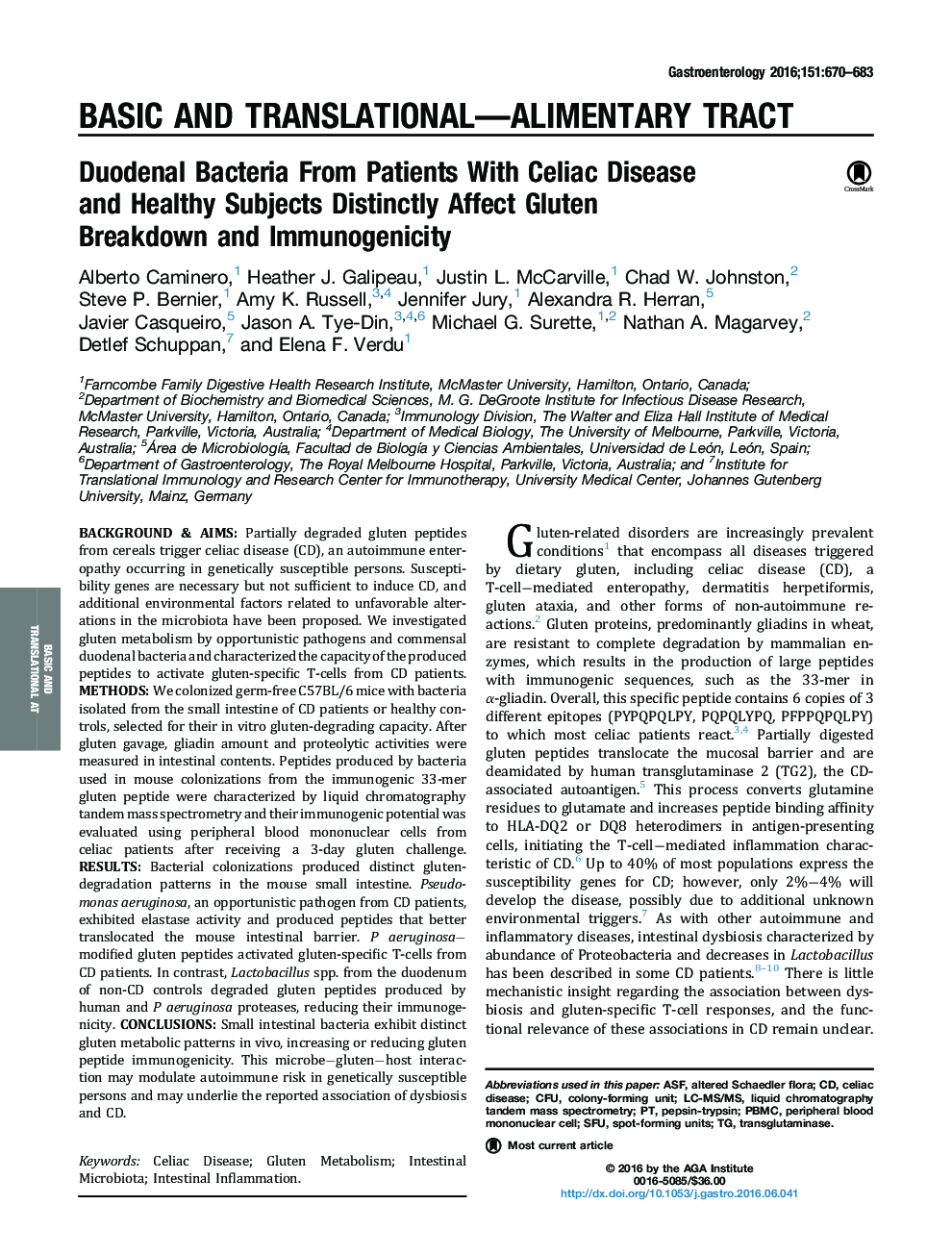| کد مقاله | کد نشریه | سال انتشار | مقاله انگلیسی | نسخه تمام متن |
|---|---|---|---|---|
| 3291867 | 1407435 | 2016 | 14 صفحه PDF | دانلود رایگان |
Background & AimsPartially degraded gluten peptides from cereals trigger celiac disease (CD), an autoimmune enteropathy occurring in genetically susceptible persons. Susceptibility genes are necessary but not sufficient to induce CD, and additional environmental factors related to unfavorable alterations in the microbiota have been proposed. We investigated gluten metabolism by opportunistic pathogens and commensal duodenal bacteria and characterized the capacity of the produced peptides to activate gluten-specific T-cells from CD patients.MethodsWe colonized germ-free C57BL/6 mice with bacteria isolated from the small intestine of CD patients or healthy controls, selected for their in vitro gluten-degrading capacity. After gluten gavage, gliadin amount and proteolytic activities were measured in intestinal contents. Peptides produced by bacteria used in mouse colonizations from the immunogenic 33-mer gluten peptide were characterized by liquid chromatography tandem mass spectrometry and their immunogenic potential was evaluated using peripheral blood mononuclear cells from celiac patients after receiving a 3-day gluten challenge.ResultsBacterial colonizations produced distinct gluten-degradation patterns in the mouse small intestine. Pseudomonas aeruginosa, an opportunistic pathogen from CD patients, exhibited elastase activity and produced peptides that better translocated the mouse intestinal barrier. P aeruginosa−modified gluten peptides activated gluten-specific T-cells from CD patients. In contrast, Lactobacillus spp. from the duodenum of non-CD controls degraded gluten peptides produced by human and P aeruginosa proteases, reducing their immunogenicity.ConclusionsSmall intestinal bacteria exhibit distinct gluten metabolic patterns in vivo, increasing or reducing gluten peptide immunogenicity. This microbe−gluten−host interaction may modulate autoimmune risk in genetically susceptible persons and may underlie the reported association of dysbiosis and CD.
Journal: Gastroenterology - Volume 151, Issue 4, October 2016, Pages 670–683
